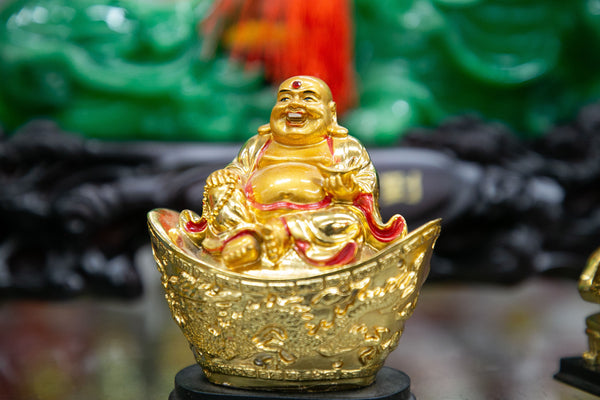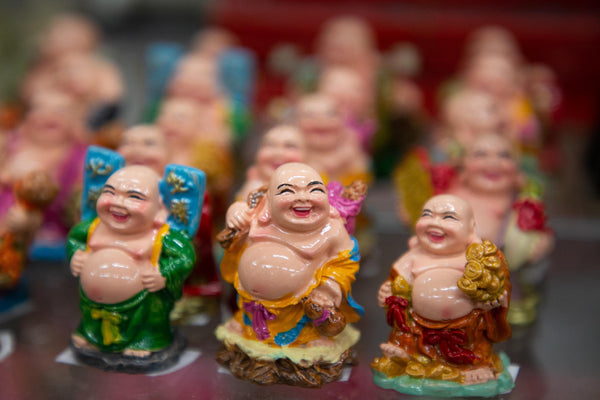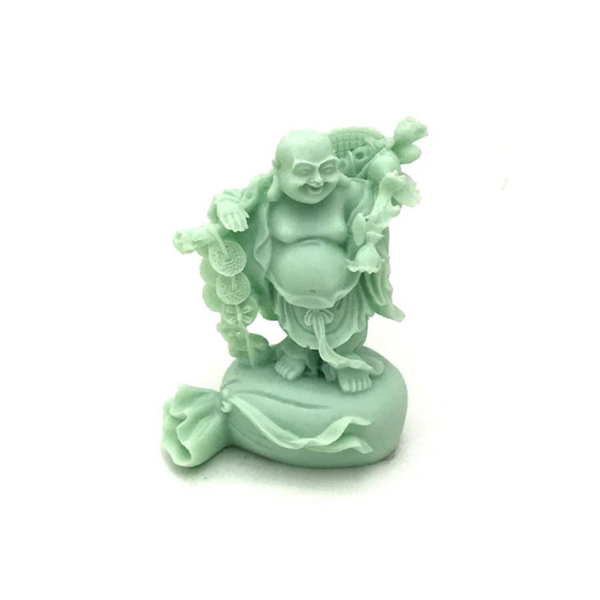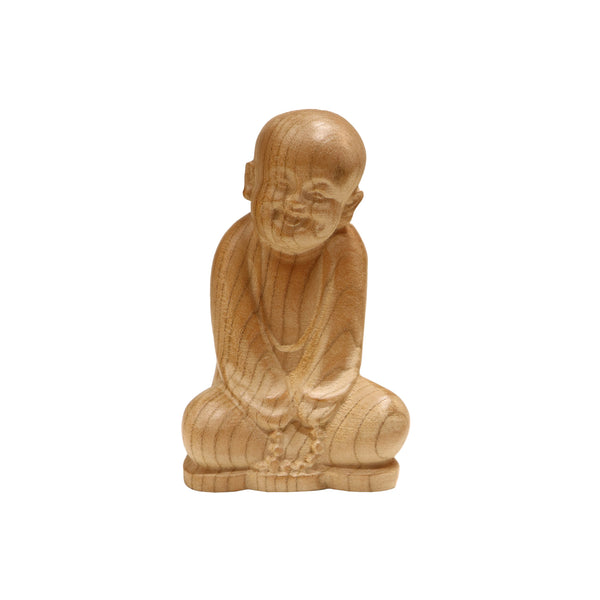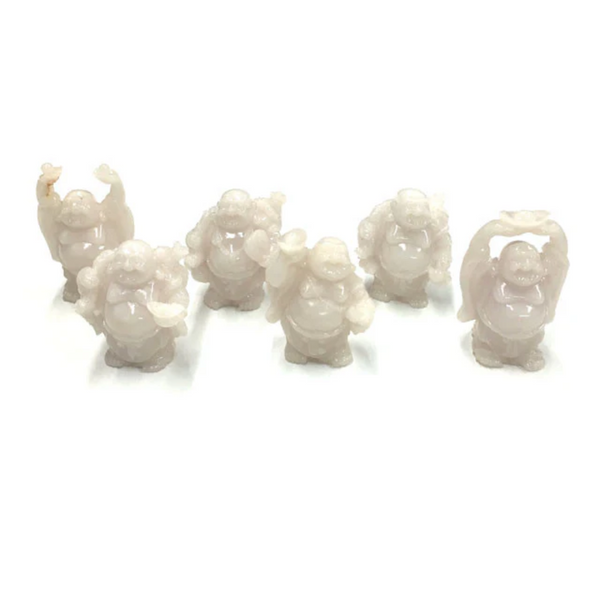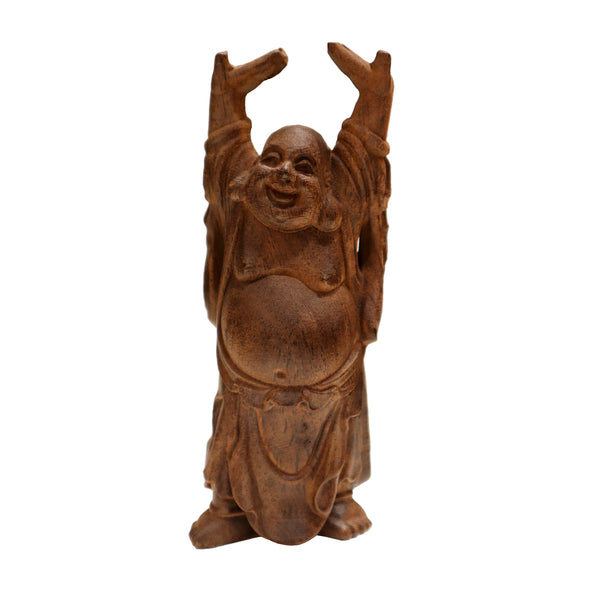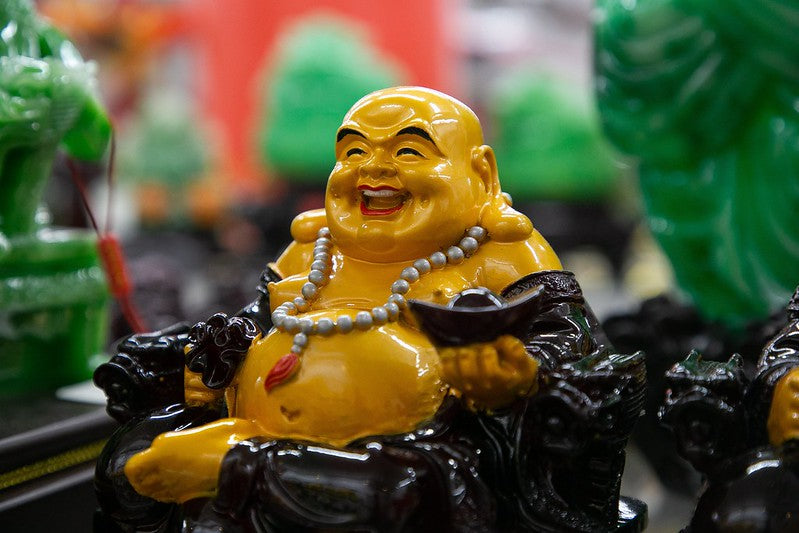
The Laughing ‘Buddha’: 6 Playful Pieces of Trivia About Budai
This jolly, corpulent fellow is one of our favorite figurines. You might know him as the “fat” or “laughing Buddha,” but did you know he's not a Buddha at all? Here are five more fun facts about this delightful deity.
He's modeled after a merry monk
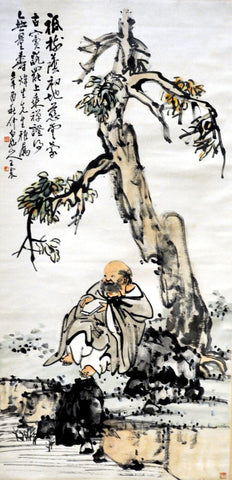
"Budai under a pine tree," Wang Zhen, 1921
While other more reticent figurines and statues are modeled after the Buddha himself (born Siddhartha Gautama in the 4th or 5th century BC), the gregarious, pot-bellied version represents a 10th-century Chinese monk named Budai.
Budai said to have wandered from village to village with a large sack (in Mandarin Chinese, “bu dai” translates as “cloth bag”), handing out rice and sweets to children and the poor.
Budai is the future
In his supposed death note, the monk claimed to be an incarnation of Maitreya, commonly known as “the Future Buddha.” It’s believed Maitreya will return after the world has destroyed itself to teach and spread Buddhist doctrine.
In Japan he’s known as Hotei (and is kinda creepy)
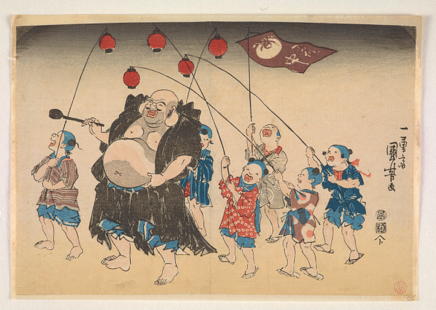
"Hotei and children carrying lanterns," Utagawa Kuniyoshi. Early- to mid-19th century
The Japanese version of Budai is called Hotei Osho (“cloth sack monk”). In some versions, he has eyes in in the back of his head, the better with which to see naughty children who would be deprived of his sweets.
He’s also one of Seven Lucky Gods
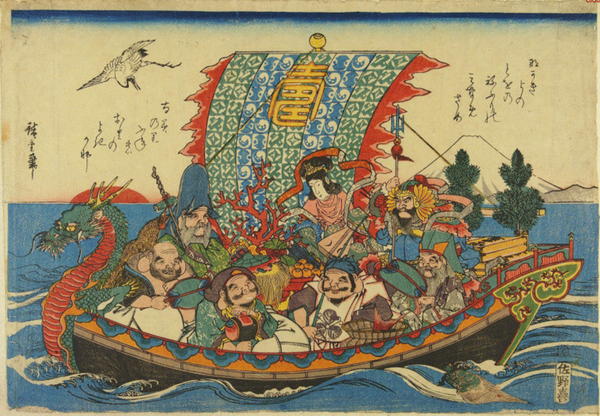
"Takarabune," Hiroshige
With his large stomach and bulging bag representing happiness and abundance, he’s one of the Seven Lucky Gods in Japanese culture. The others are:
- Ebisu, the God of Fishing, Shipping, and Commerce
- Daikokuten, the God of Wealth and Prosperity
- Bishamonten, the God of Warriors and the Defense Against Evil
- Benzaiten, the Goddess of Art and Knowledge
- Fukurokuju, the God of Wealth, Happiness, and Longevity
- Jurojin, the God of Wisdom
The seven gods are often shown riding the Takarabune or Treasure Boat, which they pilot through the heavens during the first three days of the New Year (which is celebrated in Japan on Jan. 1).
You can find these good luck gods, the special ship, and other fortunate symbols on our Lots of Luck tea cup.
Budai figurines come in many varieties
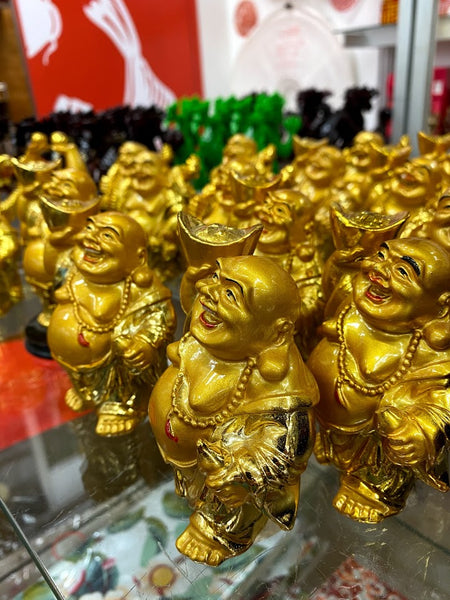
As with the Buddha, Budai can be seen in a several different positions, each with its own meaning. He might be shown holding a wo lu or gourd, which is believed to absorb negative energy.
Depicted sitting on a pile of coins of ingots, holding a bag, or holding up pearls or ingots symbolizes wealth, prosperity, and abundance.
Rubbing his belly is good luck
While not a Buddhist teaching, practicing Buddhists don’t seem to take issue with giving Budai’s tummy a tap for good fortune.
Want to learn more about what might bring you luck? Check out nine auspicious items good for feng shui.
